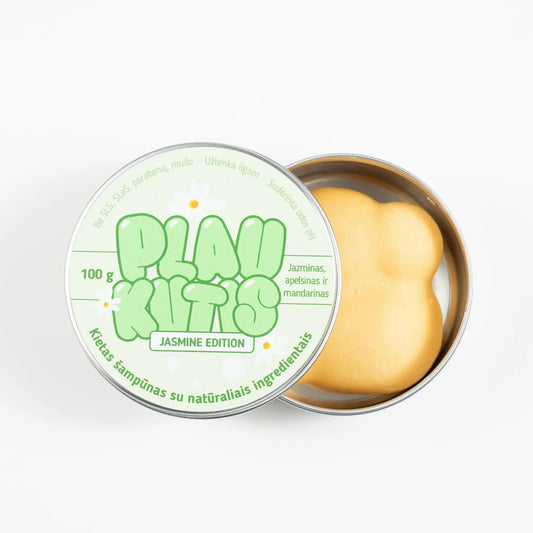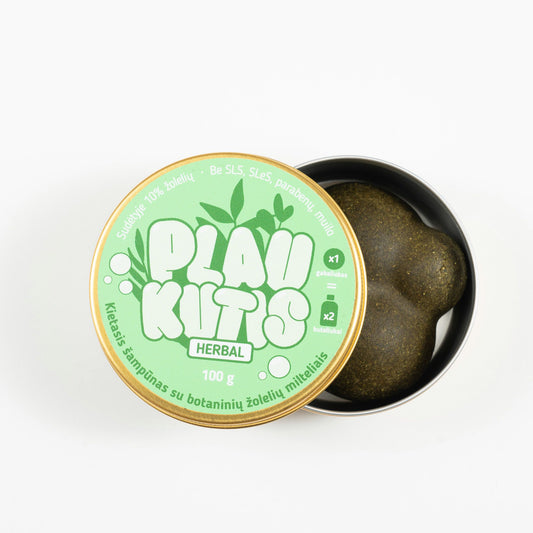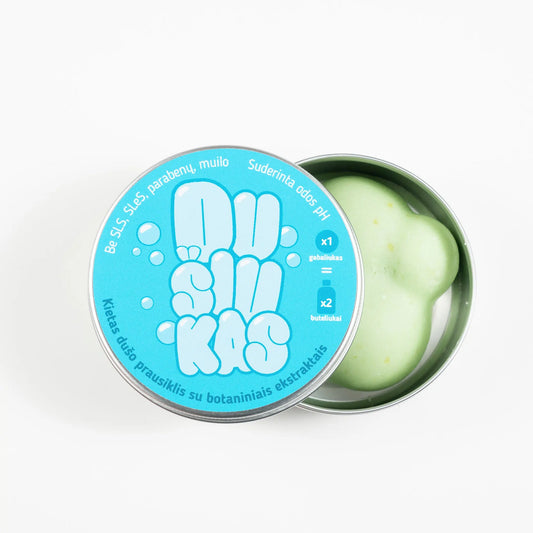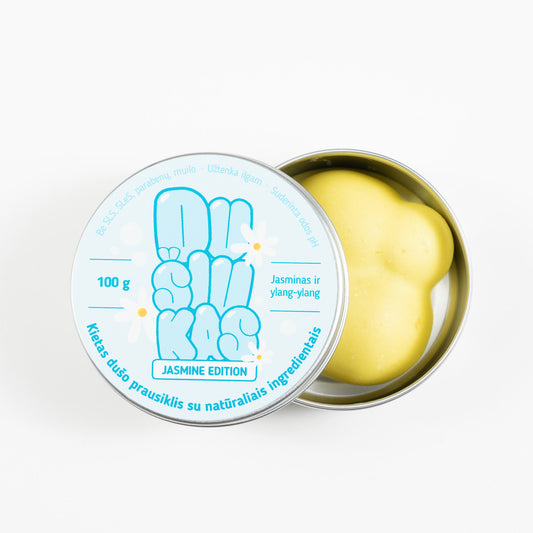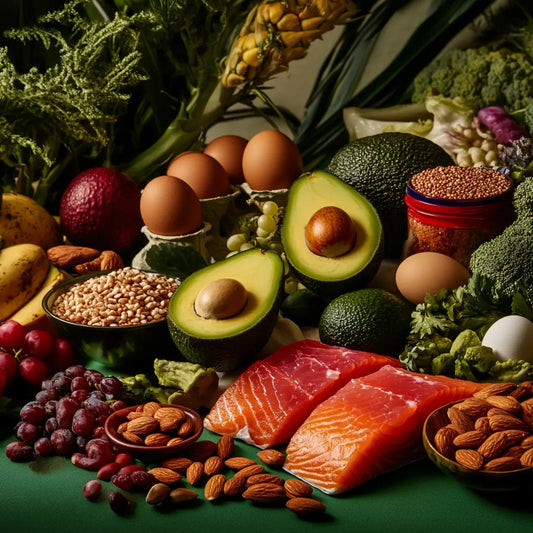r mousses have become extremely popular. These products promise to keep hair clean without water, which is especially attractive to people who want to reduce water consumption, save time or maintain healthy hair between washes. The global market for dry beauty products is expected to grow by as much as 11.5% per year , and its value will reach $24 billion by 2028. This indicates a strong consumer interest in sustainable and convenient hair care products.
But the question is: are these products as effective as regular shampoos? What are their drawbacks, and how can they best be integrated into your hair care routine? In this article, we will review the effectiveness, advantages, disadvantages of dry products, and provide some useful tips.
The effectiveness of dry shampoos and powders
Dry shampoos and hair powders have become popular choices for those looking to give their hair a quick refresh. These products use absorbent ingredients to remove oil and dirt from the scalp. But how effective are they, and how do they compare to regular shampoos?

How do dry products cleanse hair?
Dry shampoos work by absorbing oil and impurities with ingredients like rice starch , cornstarch , and kaolin clay . These absorbent materials bind to the oil on your scalp and hair, making it easy to brush out. Studies have shown that dry shampoos can reduce scalp oiliness by up to 30% in a single use, making them an effective quick refresher.
One study in the International Journal of Cosmetic Science found that dry shampoos reduced scalp oiliness by an average of 25% , especially in participants with oily hair. However, while these products are effective at controlling oiliness, they are no substitute for regular shampoos, which cleanse the scalp more thoroughly, removing dirt, sweat, and product residue.
Benefits for different hair types
Dry products are especially useful in certain situations and for different hair types. Those with oily hair especially benefit from using these products because they absorb excess oil without the need to wash their hair too often. According to a survey, 72% of women with oily hair use dry shampoo several times a week.
For those with fine hair , dry shampoos also provide extra texture and volume, helping to extend the hold of your hairstyle between washes. According to Harper's Bazaar , 68% of people with fine hair noticed a feeling of fullness in their hair after using dry shampoo.
Women with curly or textured hair are more likely to choose dry mousse. This mousse helps cleanse the scalp while moisturizing the hair, maintaining the shape of the curls. According to a survey, 40% of women with textured hair choose dry mousse because of its moisturizing properties.

Situations where dry products are effective
- Busy days : Dry products are great for quickly refreshing your hair when there's no time for a full wash.
- After a workout : Dry shampoos help remove sweat and oil after a workout when there is no opportunity to shower.
- During travel : Dry products are indispensable during long trips or in places where washing facilities are limited.
- Environmental protection : Using dry products can reduce water waste, which is especially important in regions with water shortages.
The average shower in the US uses about 65 liters of water (source: EPA ). Skipping one wash per week and using dry products can save more than 2,600 liters of water per year.
Disadvantages: When dry products may not work
Despite their advantages, dry products also have some disadvantages. They are not always suitable for all hair types and all situations.

Heavily dirty or product-laden hair
Dry shampoos and powders are great for lightly to moderately dirty hair, but they are not effective when it comes to deep cleansing the scalp. If you have used a lot of styling products or your hair is very dirty, dry shampoos may not provide enough cleansing. In this case, it is better to choose traditional shampoos, which are more effective at removing impurities.
A 2019 study found that dry shampoo users reported a 30% decrease in satisfaction after going without traditional shampoo for an extended period of time, especially after using a lot of styling products.
Not suitable for curly or textured hair
Curly and textured hair often needs more moisture, so dry shampoos can further dry it out, causing frizz or loss of curl. 70% of women with curly hair reported that dry shampoos left their hair dry and unmanageable.

Long-term use may cause product buildup
One of the main drawbacks of dry shampoos is that they can cause product buildup on the scalp. This can lead to irritation or even reduced hair growth. Experts recommend alternating dry shampoos with regular shampoos on a regular basis to avoid these problems.
A study published in the Journal of Cosmetic Dermatology found that participants who used dry shampoo more than 4 times a week experienced a 15% increase in scalp irritation , compared to those who used it once or twice a week.
Best practices for using dry hair care products
To get the most out of dry products, it is important to use them correctly.
Application tips
- Use on dry hair : Dry products work best on dry hair. They can feel heavy when used on damp hair.
- Consult the roots : Concentrate the product on the scalp and roots, where oil accumulates.
- Leave in : Allow the product to absorb for a few minutes before massaging or combing.
- Comb through well : After use, comb through hair well to remove excess product.

Frequency of use
- For oily hair : Use dry shampoo 2-3 times a week between traditional washes.
- For dry or curly hair : Limit use to once a week and choose a water-free mousse.
- Clarifying shampoo : Use a clarifying shampoo once a week to remove product residue.
Myth or fact?
- Myth : Dry shampoos are harmful to the scalp.
Fact : Dry shampoos are safe when used correctly and in moderation. Studies show that 85% of dermatologists believe that dry shampoos are safe for most scalp types when used in moderation. - Interesting fact : By giving up one traditional wash per week and using dry products, you can save up to 500 liters of water per year.
- Myth : Dry products don't work on thick or textured hair.
Fact : Waterless foam is specially formulated for thick, curly and textured hair, providing gentle cleansing and hydration. - Fun fact : The dry beauty products market is set to grow to $15 billion by 2028 as people become more concerned about protecting the environment.
- Myth : Dry shampoos cause a lot of product buildup.
Fact : When used correctly and combined with regular washes, dry products do not cause significant buildup.

Conclusions: When to choose dry hair care?
Dry hair care products are a convenient and eco-friendly solution for keeping your hair clean between traditional washes. While they are effective at controlling oil and maintaining style, they should not completely replace traditional washing. For those with busy lifestyles or those looking to reduce water consumption, these products can become an important part of your hair care routine.
